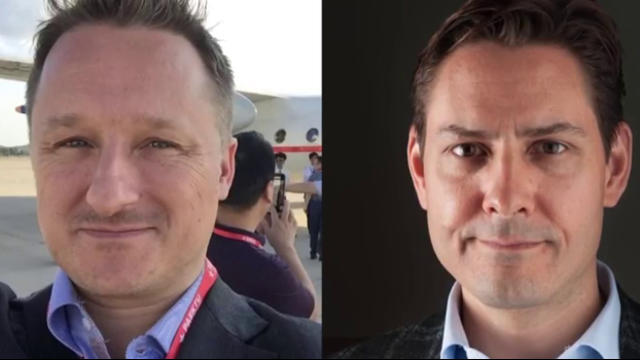The detentions of two Canadians by China should be viewed as “retaliation” by China for the arrest of Huawei CFO Meng Wanzhou.

Gary Locke, who served as the U.S. ambassador to China from 2011 to 2014, told the West Block’s Mercedes Stephenson in an interview that he and many other ex-diplomats and scholars who signed a letter last week to Chinese President Xi Jinping asking him to release Michael Kovrig and Michael Spavor believe that to be the case.
“Clearly so many of us who signed that letter really felt that this was retaliation,” Locke said.
“Certainly I think world opinion is on the side of the two detained Canadians.”
WATCH BELOW: Canadian ambassador to China tells Chinese-language media that Huawei CFO has strong case

China detained Kovrig and Spavor in December 2018 shortly after the arrest of Meng by Canadian authorities at the behest of American counterparts.
Indications so far are that the United States suspects Meng of fraud and believes Huawei used a subsidiary to skirt U.S. sanctions on doing business with Iran.
READ MORE: China grants Ivanka Trump 5 trademarks amid U.S.-China trade talks
Meng denies the allegations and has been released on bail in Vancouver.
The U.S. has until the end of January to submit a formal request for her extradition, which officials there have indicated they will do.
Despite accusations by China that Canada’s arrest of Meng was politically motivated, Canada has a longstanding extradition treaty with the U.S. and regularly extradites more than 90 per cent of the people requested by the Americans.
WATCH BELOW: White House economic adviser says trade talks will ‘help’ China

However, U.S. President Donald Trump told Reuters he would intervene in her case if it could help the U.S. get a better trade deal with China, bolstering concerns he may view Meng as a bargaining chip for his trade war with China.
Canada, meanwhile, has been caught in the middle.
In controversial remarks last week, John McCallum, the Canadian ambassador to China, pointed the finger at Trump and said Meng could make a “strong” argument there is political involvement in her case because of the president.
READ MORE: Huawei CFO has ‘strong’ case that Donald Trump politicized her arrest, McCallum says
McCallum also said extraditing Meng “would not be a happy outcome.”
He was fired from the post of ambassador on Saturday.
Locke said he couldn’t predict whether those comments might help Meng make a case to avoid extradition but noted that if she is not extradited, it could help cool things down in the tense talks between the U.S. and China over trade.
“It certainly affects the trade negotiations between the United State and China.,” he said. “If she is not extradited I think that would help lower the temperature and some of the high stakes involved, but that’s a legal matter.”
However, as long as Meng continues to be detained, the Chinese will continue putting trying to turn the nails on Canada because officials there take Trump’s comments on the case as proof of political motivation, Locke added.
“The president’s comments have signalled to the Chinese that perhaps this is politically motivated,” he said.
“So they’re trying to put pressure on Canada to release Ms. Meng by detaining these two Canadian citizens.”
American authorities have until Jan. 31 to submit a formal request for her extradition.
- Alberta to overhaul municipal rules to include sweeping new powers, municipal political parties
- Military judges don’t have divided loyalties, Canada’s top court rules
- Grocery code: How Ottawa has tried to get Loblaw, Walmart on board
- Norad looking to NATO to help detect threats over the Arctic, chief says




Comments